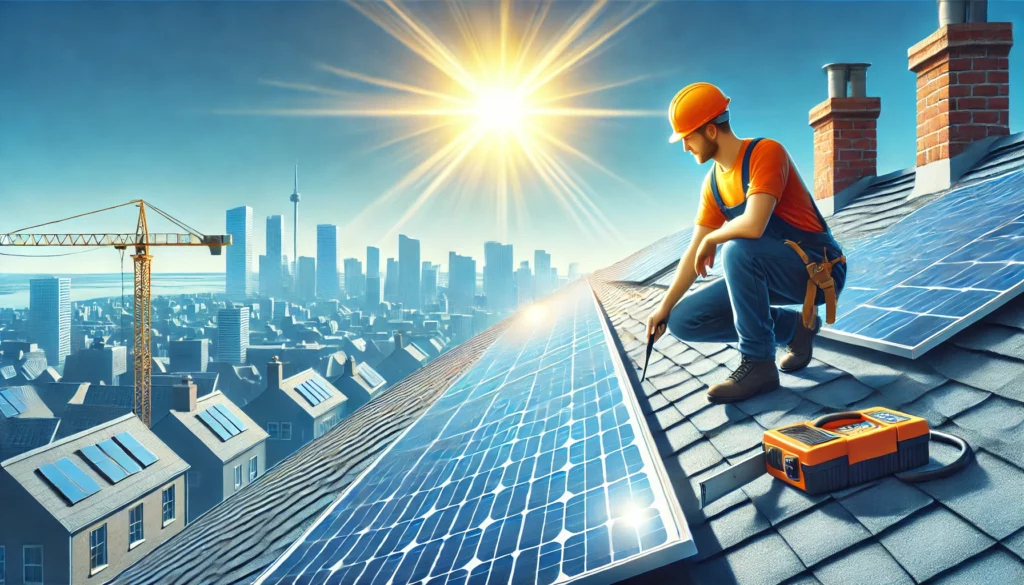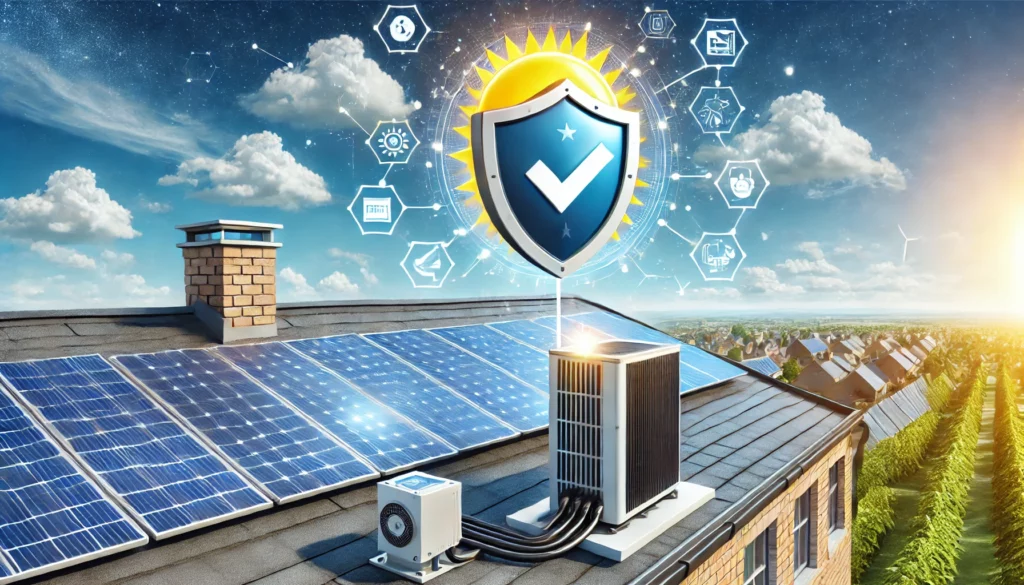Image source: Canva.com
When investing in a solar energy system, it’s essential to understand the warranties that safeguard your panels and equipment over the years. While solar technology is durable and long-lasting, warranties provide peace of mind and ensure your investment is protected.
This guide breaks down the key types of warranties to look for, including power production guarantees, equipment warranties, and workmanship coverage. By knowing what to expect, you can make informed decisions and enjoy long-term savings from your solar system.
Different Types of Solar Warranties
When investing in a solar energy system, it’s essential to understand the various warranties that come with it. These warranties generally cover both the equipment and the installation.
Solar Power Production Warranty
Over time, solar panels naturally lose efficiency, but a power production warranty guarantees they’ll maintain a specific percentage of their original capacity.
Typical Guarantee: After 25 years, most panels will still operate at about 80% efficiency.
What to Look For:
- Higher percentage guarantees.
- Low annual degradation rates (no more than 0.7% per year).
Solar Equipment Warranty
Solar panels are durable and have no moving parts, requiring minimal maintenance. Despite their robustness, a solar equipment warranty, also known as the “materials” warranty, ensures that your panels are free from manufacturing defects or durability issues.
For Panels
Industry-standard warranties last 10 years, with premium brands offering up to 25 years.
For Inverters
Inverter warranties are typically shorter (5–10 years) since they have a shorter lifespan, but some brands extend up to 25 years.
Why It Matters
These warranties cover replacement costs if defects or durability issues arise.
Solar Installer Workmanship and Roof Warranties

A workmanship warranty covers the quality of the installation and ensures the system was installed correctly.
What’s Included
Coverage for design flaws, installation errors, and potential issues like roof leaks.
Roof Protection
Properly installed solar panels won’t void your existing roof warranty and can even protect your roof from weather-related wear and tear.
Duration
Workmanship warranties vary but often range from 5 to 10 years, with some covering labor costs for servicing during the warranty period.
If you have concerns about the potential damage solar panels might cause to your roof, check out this article for more information. Workmanship warranties vary among installers; some include labor costs for any equipment servicing required during the warranty period, while others may not. It’s crucial to review the workmanship warranty thoroughly to understand what is covered before signing a contract.
Impact on Solar Warranties if Your Installer Goes Out of Business

If your solar installer goes out of business, don’t worry about the most crucial aspect of your system: the equipment warranties. Manufacturer warranties will still cover your solar panels and other key components, even if the installer is no longer available to honor their workmanship warranty. Issues with the installation are likely to become apparent soon after setup, so any potential problems should be detectable early on.
Just as with purchasing a new home appliance, the focus should be on the quality of the equipment rather than just the installer. A solid equipment warranty paired with a strong power performance warranty is the best assurance of long-term reliability and performance.
In the unlikely event that a problem arises, many solar equipment manufacturers are established, reputable companies with a track record of honoring their warranties. This stability ensures that you can trust them to stand by their products if issues occur. Be sure to compare your options and choose high-quality solar panels for your home to ensure the best performance and warranty coverage.





